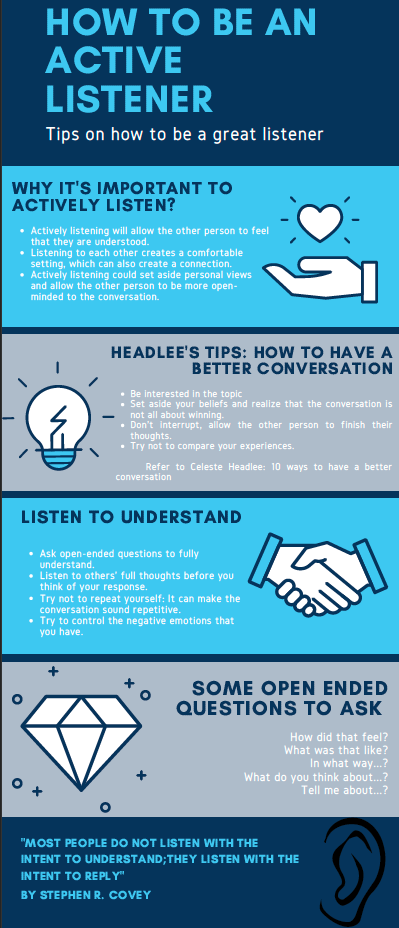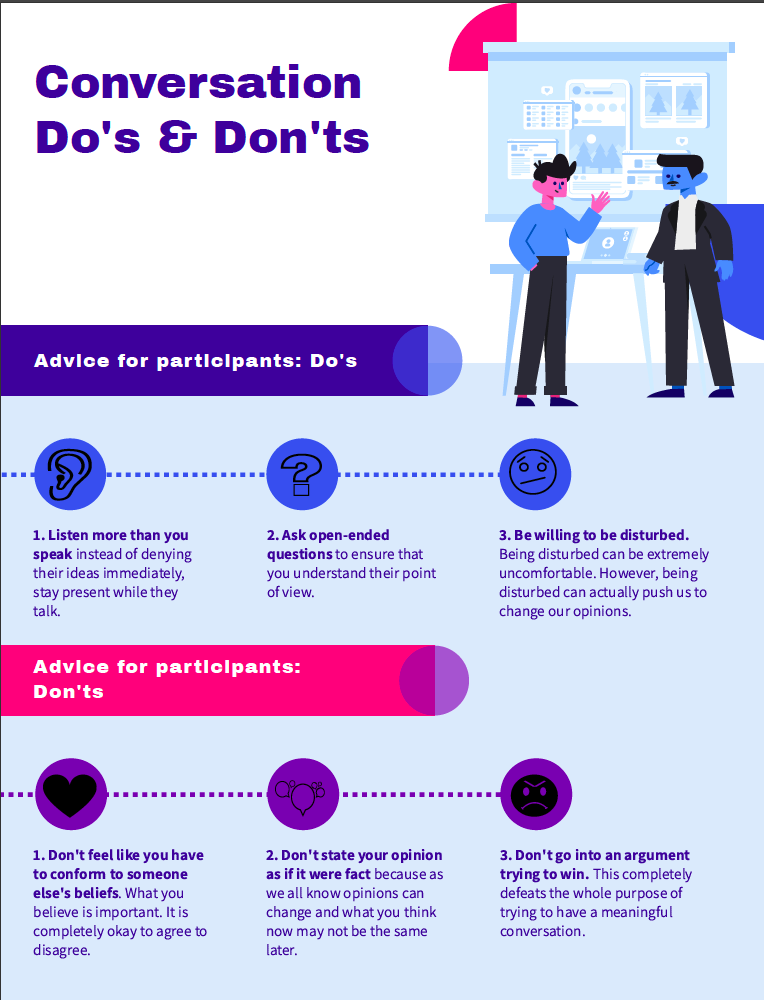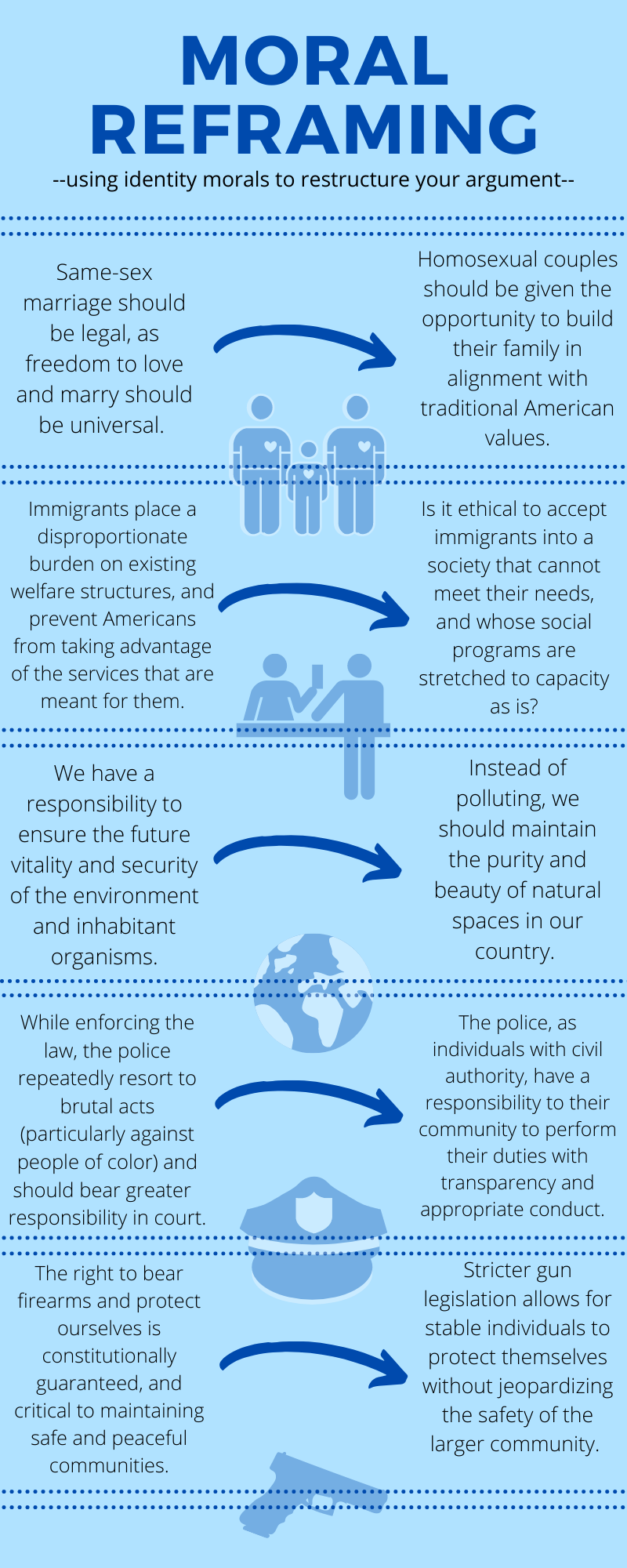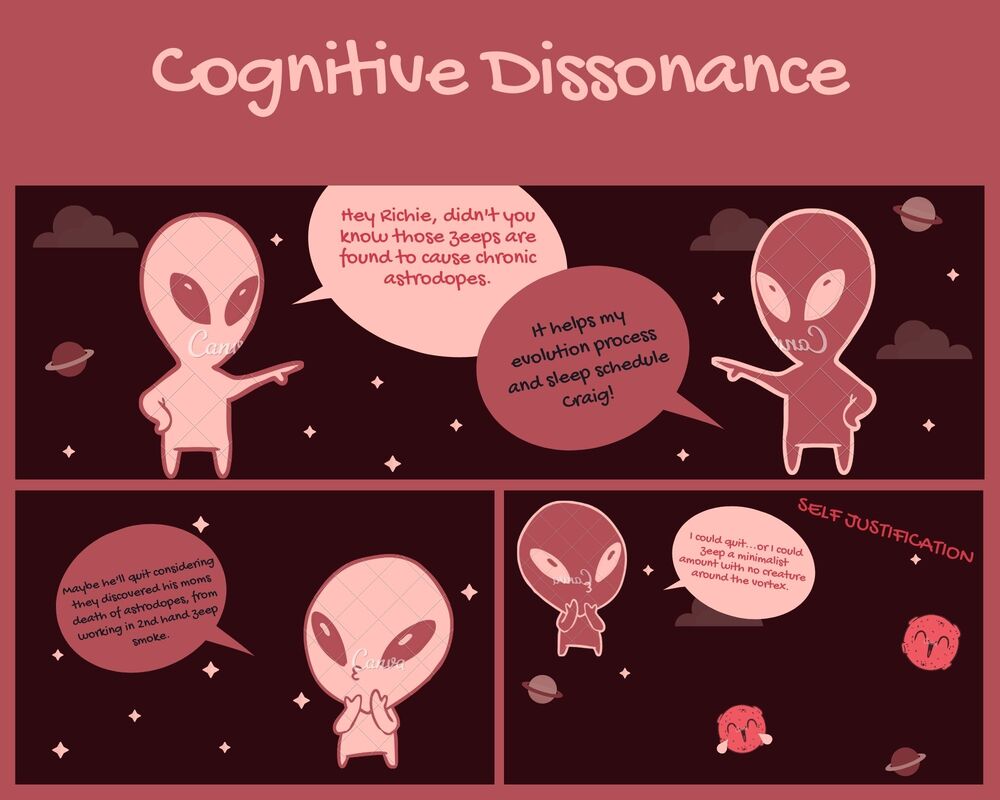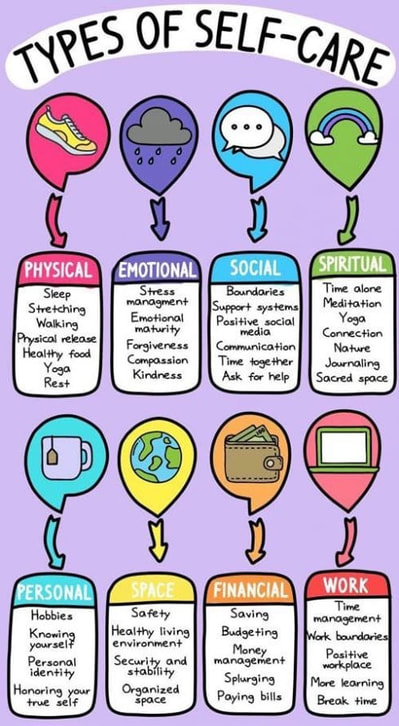Are you ready to connect?
We are FLC students working to use political psychology to have better conversations about things that matter.
As students in political psychology we have been studying how to have tough conversations about divisive topics all semester. We have found that a few conversation agreements, or norms, can make tough conversations surprisingly easy:
As students in political psychology we have been studying how to have tough conversations about divisive topics all semester. We have found that a few conversation agreements, or norms, can make tough conversations surprisingly easy:
- Listen with the goal to learn and understand rather than to respond or "win."
- Pay close attention to the person who is speaking.
- Be mindful of body language, avoiding eye rolls, head shakes, scoffs, etc.
- We encourage everyone to let their voice be heard. If you have already spoken a lot, let others share their perspectives. If you haven't spoken much, please do because your perspective matters.
Research Backed Tactics*:
|
*All tactics presented are based in research and academic literature for full overview of our toolkit with citations please feel free to download or view our toolkit.*
The slides from our 3/27 event are also available to the right |
| ||||||||||||
Active Listening: Here to Listen Here to Learn
|
Have you ever left a conversation feeling energized, empowered, and connected? Have you ever left a conversation feeling belittled, alienated, and exhausted? What was the difference between these experiences?
We think that real, authentic listening makes all the difference. In our world of social media and sound bites, listening is a lost art. During our own tough conversations we were surprised to learn just how much the simple act of listening made a difference, so we wanted to offer you some easy tips and tricks for connecting by listening to understand rather than to respond or "win." Looping: This active listening strategy involves reflecting back what the other person has said and checking if your summary accurately captures their perspectives. Make sure the other person is feeling heard. We hope this helps! - Ty, Jayme, and Marisa |
Additional Resources on Active Listening and Looping:
|
Asking Better Questions:
Recommended conversation practices
Approach every conversation with an attitude that you have something to learn, and use journalism’s open-ended “who, what, when, why, where, how” to ask questions from a place of genuine curiosity.
Ask clarifying questions to increase intellectual humility by revealing gaps in understanding.
In reflecting upon our own tough conversations and listening to the experiences of our colleagues, we found the tips below to be critical to connecting. We hope this helps!
- Kaylin, Jackson, and Iva.
Ask clarifying questions to increase intellectual humility by revealing gaps in understanding.
In reflecting upon our own tough conversations and listening to the experiences of our colleagues, we found the tips below to be critical to connecting. We hope this helps!
- Kaylin, Jackson, and Iva.
|
|
|
|
Resonate with moral reframing Moral foundations are the key considerations for determining a person’s view of the world. Each person’s morals vary greatly, but none are better or worse and more right or wrong. However, we tend to let our morals “bind and blind” us in politics and social settings. While moral foundations “bind” us to our in-group, they also “blind” us, creating conflict with out-groups who solve moral problems differently. In order to deal with this conflict created by our varying morals, we must highlight our similar identities to find commonalities in our morals which don’t vary as much as we think. This process can be done through moral reframing, a necessary tool for productive contentious conversation. Reframing is to rework an idea to fit in with the morals of a person with opposing views so that they see the issue from a new perspective that appeals to their morals, and maybe (likely) not yours. We hope our infographic and the video below by researcher Robb Willer help you resonate better with moral reframing! - Téa, Diana, and Kennedy. Basics of Moral Foundations Theory |
Complicate the narrative by being surprised and breaking stereotypes
We hold wildly false stereotypes about outgroups, particularly political outgroups (Ahler and Sood 2023). When we bring those stereotypes to our conversations, we shut down curiosity and good will as nobody likes to be put in a box and stereotyped. Instead, be surprising and complicate the narrative. This disrupts conflict loops and opens space for new connections.
Complicating the narrative is a prominent mediation journalism tactic in order to get down to the specific factors that contribute to a certain issue. This is done by asking the deep down questions that people tend to avoid and understanding what is happening through both a historical and contextual lens. The goal of complicating the narrative is not to just get rid of the issue, but instead have people go in and out of the issue to understand it better.
Complicating the narrative is a prominent mediation journalism tactic in order to get down to the specific factors that contribute to a certain issue. This is done by asking the deep down questions that people tend to avoid and understanding what is happening through both a historical and contextual lens. The goal of complicating the narrative is not to just get rid of the issue, but instead have people go in and out of the issue to understand it better.
A podcast that focuses on actively breaking down the stereotypes and adding more information to misconceptions for people to listen to; Complicating the Narrative by ConTextos:
Amanda Ripley broke down the idea of complicating the narrative into 9 different steps, 1 Listen differently, 2 Go beneath the problem, 3 Embrace complexity, 4 Counter confirmation bias, 5 Amplify contradictions, 6 Widen the lens, 7 Ask questions to get peoples motivations, 9 Expose other people to the tribe.
“Complicating the narrative means finding and including the details that don’t fit the narrative — on purpose.” (Ripley 2019) Complicating the narrative is something that involves being disturbed, hearing and accepting information that is outside of your own echochambers. After accomplishing the basic steps, listening, and understanding; you will find that the conversation will have kept you intrigued, and if it did not hit your biases and backfire, then you will realize you feel good after the conversation, and maybe even want to have another one
Medium Solutions Journalism Resource: 22 Questions that "Complicate the Narrative"
“Complicating the narrative means finding and including the details that don’t fit the narrative — on purpose.” (Ripley 2019) Complicating the narrative is something that involves being disturbed, hearing and accepting information that is outside of your own echochambers. After accomplishing the basic steps, listening, and understanding; you will find that the conversation will have kept you intrigued, and if it did not hit your biases and backfire, then you will realize you feel good after the conversation, and maybe even want to have another one
Medium Solutions Journalism Resource: 22 Questions that "Complicate the Narrative"
|
|
|
Curious mindset and identity, such as a “scientist” or “scout"
The curious mindset, also called the scout mindset or scientist mindset is a powerful tool for fostering meaningful conversations and connections. At its core, it revolves around adopting a mindset that involves genuine curiosity and openness. Rather than approaching a conversation with a preconceived notion or with the intention of proving a point, the curious mindset encourages active listening, empathy, and a want for understanding. When approaching a conversation, go in with the desire to learn and understand a different perspective. Ask open ended questions that encourage elaboration on different thoughts and feelings. Instead of just assuming, adopt the explorer mindset where you are wanting to learn new things. Truly listening to that is being said is crucial for understanding. Give your full attention, maintain eye contact, and avoid interrupting people when they’re speaking. Showing empathy by acknowledging other people’s emotions, even if you don’t necessarily agree, is also important for creating a safe space for open dialogue. It’s natural to have your own opinion but try not to bring these into the conversation. Instead of jumping to conclusions, go into the conversation with an open mind and challenge yourself to see things from a different perspective, even if they contradict your own beliefs. Look for areas where you can come to an agreement. Finding shared values can create a constructive dialogue. Even during sensitive conversations, there is often a common ground that can be found if you approach the conversation with sincerity and openness. Change doesn’t happen overnight, but by being patient and respecting other opinions, we can avoid hostility and defensiveness. By embracing the curious mindset strategy, you can transform conversations into opportunities for connection, understanding, and growth.
We can choose to engage in conversations with different goals and different identities. If we enter a conversation as a soldier for our side or a politician trying to convince, we’re likely to narrow our own view and invite pushback from our conversation partner. However, if we emphasize curiosity and an investigative identity such as “scout” or “scientist,” we might be better able to both see the issue more clearly and connect with and learn from our conversation partner
This article talks about the scout mindset vs the soldier mindset and how these can affect your conversations. It goes off of the TedTalk that is available below. It goes deeper into these two topics and provides an example of Alfred Dreyfus and his struggle trying to maintain his innocence because of the mindset that the officers already had. I think this article does a really good job at explaining these two mindsets and the benefits of a scout or curious mindset.
This article goes deeper into the scout mindset and what it entails. It gives a lot of quotes from Julia Galef, the same girl in the TedTalk. It talks about the benefits of this kind of mindset, like being more enlightened, less confrontational, and making better decisions. It also gives 4 tips on how to start using this mindset in your everyday life.
We can choose to engage in conversations with different goals and different identities. If we enter a conversation as a soldier for our side or a politician trying to convince, we’re likely to narrow our own view and invite pushback from our conversation partner. However, if we emphasize curiosity and an investigative identity such as “scout” or “scientist,” we might be better able to both see the issue more clearly and connect with and learn from our conversation partner
This article talks about the scout mindset vs the soldier mindset and how these can affect your conversations. It goes off of the TedTalk that is available below. It goes deeper into these two topics and provides an example of Alfred Dreyfus and his struggle trying to maintain his innocence because of the mindset that the officers already had. I think this article does a really good job at explaining these two mindsets and the benefits of a scout or curious mindset.
This article goes deeper into the scout mindset and what it entails. It gives a lot of quotes from Julia Galef, the same girl in the TedTalk. It talks about the benefits of this kind of mindset, like being more enlightened, less confrontational, and making better decisions. It also gives 4 tips on how to start using this mindset in your everyday life.
|
|
|
Are you willing to be disturbed?
Housing is a wicked problem that no one individual, group, or ideology can solve alone. Addressing the problems we face requires brave people to come together to have difficult conversations and be willing to be disturbed and challenged in the process. Check out our podcast above on being willing to be disturbed. For more, we recommend reading the original "Willing to be disturbed" article by Margaret Wheatley.
- Cierra, Kate, and Kyra
- Cierra, Kate, and Kyra
Understanding cognitive dissonance
Priscilla Moreno and Elyza Zuni
|
The backfire effect is one of the ways in which our brain goes on the defense to protect our core beliefs. But why is it so difficult to be disturbed? The concept called cognitive dissonance could explain why it is so hard. Cognitive dissonance occurs when two cognitions, or a cognition and an action contradict one another and causes us to feel discomfort; to ease the
discomfort, we rationalize and self -justify our actions to align with our beliefs. For a brief overview of the concept check out this video by the McCombs School of Business: |
Below is a comic by Elyza Zuni with two conflicting ideas: |
When you feel discomfort, acknowledge it and try to recognize the two beliefs that are
causing your discomfort. Accept the discomfort, be willing to be disturbed, and perhaps change
for the better. As the social psychologist Dr. Carol Tavris states “The goal is to hold those beliefs
lightly enough, so if evidence comes along showing that we are wrong, we can let it go.”
For a deeper dive into cognitive dissonance check out Dr. Carol Tavris’ lecture which connects
the concept to real world applications.
causing your discomfort. Accept the discomfort, be willing to be disturbed, and perhaps change
for the better. As the social psychologist Dr. Carol Tavris states “The goal is to hold those beliefs
lightly enough, so if evidence comes along showing that we are wrong, we can let it go.”
For a deeper dive into cognitive dissonance check out Dr. Carol Tavris’ lecture which connects
the concept to real world applications.
Navigate conflict better by understanding emotions like anger and contempt.
|
Sometimes negative emotions are an important way to push a discussion forward, especially given some of the urgent problems we face. However, the way we express these negative emotions makes the critical difference between solving problems together or blowing up our conversation. Take a listen to these resources on the most critical distinction between anger and contempt.
- Grey |
|
The Importance of Mental Health
By Jess Dorn, Tess Richard, Anastasia Abshire
Politics are a very mentally taxing topic in general. In order to have a productive conversation, you need to be in a good headspace. Here are some resources to use in order to ground yourself, recollect your thoughts, and take care of yourself.
Here are a list of resources to use to benefit your mental health:
Email: [email protected]
Hours: Fall/Winter Terms: M-F 8 a.m. - noon, 1-5 p.m. Summer: T/TH 8 a.m. - noon, 1-5 p.m.
Location: 260 Noble Hall. Fort Lewis College. 1000 Rim Drive. Durango, Colorado 81301. Call for an appointment: 970-247-7355, Emergencies: 911Hours: M - F, 8:30 a.m. - 4:30 a.m.
Location: Skyhawk Station, Room 170
Tele-Med remote care appointments are via Microsoft Teams. Download the Microsoft Teams app to your digital device for your appointment. Phone: 970-247-7383
Email: [email protected]
Physical Location: Reed Library, 071
National Suicide and Crisis Number: 988
Text or call: 988
Here are a list of resources to use to benefit your mental health:
- FLC Counseling Center is available for FLC community members, and students enrolled in at least 8 credit hours get an intake session and ALL sessions are free. Phone: 970-247-7212.
Email: [email protected]
Hours: Fall/Winter Terms: M-F 8 a.m. - noon, 1-5 p.m. Summer: T/TH 8 a.m. - noon, 1-5 p.m.
Location: 260 Noble Hall. Fort Lewis College. 1000 Rim Drive. Durango, Colorado 81301. Call for an appointment: 970-247-7355, Emergencies: 911Hours: M - F, 8:30 a.m. - 4:30 a.m.
Location: Skyhawk Station, Room 170
Tele-Med remote care appointments are via Microsoft Teams. Download the Microsoft Teams app to your digital device for your appointment. Phone: 970-247-7383
Email: [email protected]
Physical Location: Reed Library, 071
- Axis Health System provides mental health care for all community members.
National Suicide and Crisis Number: 988
Text or call: 988
